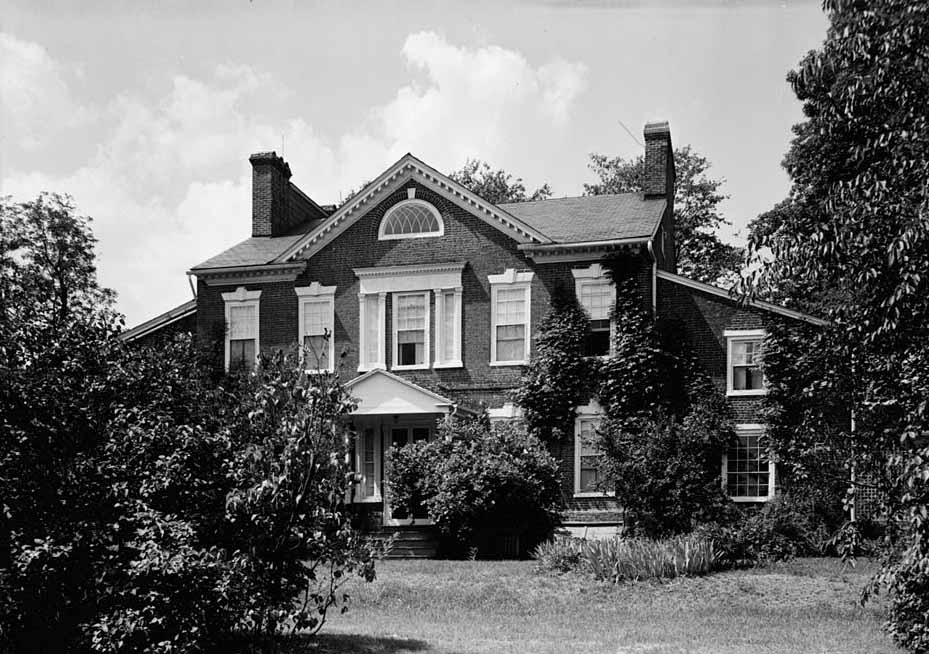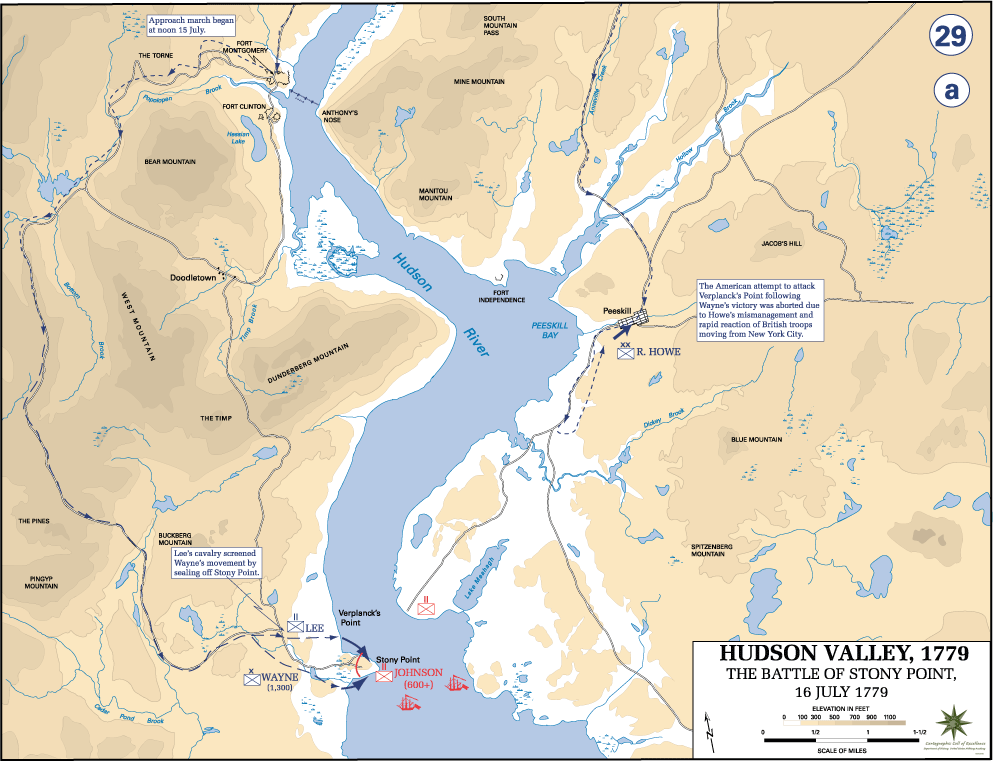|
John Archer (Maryland Politician)
John Archer (May 5, 1741 – September 28, 1810) was a prominent physician, slaveowner, and U.S. Congressman from Maryland, representing the sixth district for three terms from 1801 to 1807. His son, Stevenson Archer and grandson Stevenson Archer II were also Congressmen from Maryland. Early life Archer was born on May 5, 1741, near Churchville in the Province of Maryland, and attended the West Nottingham Academy in Cecil County, later graduating from Princeton College in 1760 with a Bachelor of Arts and in 1763 with a Master of Arts. He studied theology, but owing to a throat affliction, he abandoned his studies in that area and began the study of medicine. He graduated as a physician from the College of Philadelphia on June 21, 1768, receiving the first medical diploma issued on the American continent. Career In July 1769, Archer commenced the practice of law in Harford County. He was a member of the Revolutionary committee from 1774 to 1776, and later raised a military c ... [...More Info...] [...Related Items...] OR: [Wikipedia] [Google] [Baidu] |
Churchville, Maryland
Churchville is an unincorporated community in Harford County, Maryland, United States, situated between the county seat, Bel Air, and Aberdeen, where Aberdeen Proving Ground is located. Population The population of the area is 2,818. History and Lower Cross Roads Because it links Bel Air and Aberdeen (and indirectly, the only other incorporated town in Harford County, Havre de Grace), Churchville was once known in colonial times as Lower Cross Roads. The town has agricultural origins and is known for its many picturesque churches, particularly Churchville Presbyterian Church, at the center of town and Holy Trinity Episcopal Church. Churchville was once home to the Archers, a prominent family in Maryland and United States history. Their home, Medical Hall, still stands in Churchville, and several of the Archer family are buried in the cemetery at Churchville Presbyterian Church. Churchville is home to the champion Little-leaf Linden of Maryland, which made its debut on the li ... [...More Info...] [...Related Items...] OR: [Wikipedia] [Google] [Baidu] |
Harford County, Maryland
Harford County is located in the U.S. state of Maryland. As of the 2020 census, the population was 260,924. Its county seat is Bel Air. Harford County is included in the Baltimore-Columbia-Towson, MD Metropolitan Statistical Area, which is also included in the Washington-Baltimore-Arlington, DC-MD-VA-WV-PA Combined Statistical Area. History In 1608 the area was settled by Massawomecks and Susquehannocks. The first European to see the area was John Smith in 1608 when he traveled up the Chesapeake Bay from Jamestown. In 1652, the English and Susquehannocks signed a treaty at what is now Annapolis for the area now called Harford County. Harford County was formed on March 22, 1774 from the eastern part of Baltimore County with a population of 13,000 people. On March 22, 1775, Harford County hosted the signers of the Bush Declaration, a precursor document to the American Revolution. On January 22, 1782, Bel Air became the county seat. Havre de Grace, a city incorporated i ... [...More Info...] [...Related Items...] OR: [Wikipedia] [Google] [Baidu] |
John Montgomery (representative)
John Montgomery (1764 – July 17, 1828) was an American lawyer from Baltimore, Maryland. He represented the United States House of Representatives, Maryland District 6, sixth district of Maryland in the United States House of Representatives, U.S. Congress from 1807 until 1811. He served as the Attorney General of Maryland from 1811 to 1818 and Mayor of Baltimore from 1820 to 1822 and 1824 to 1826. Early life Montgomery was born in Carlisle, Pennsylvania, Carlisle in the Province of Pennsylvania in 1764. He was the son of John Montgomery (Continental Congress), John Montgomery, a member of the Continental Congress during the American Revolution. Montgomery was educated in Carlisle, studied law, was admitted to the bar in 1791 and moved to Harford County, Maryland to begin a practice. Career A Democratic-Republican Party, Democratic-Republican, Montgomery served in the Maryland House of Delegates from 1793 to 1798. From 1793 to 1796 he was Harford County's State’s attorney ... [...More Info...] [...Related Items...] OR: [Wikipedia] [Google] [Baidu] |
Gabriel Christie (Maryland Politician)
Gabriel Christie (November 29, 1756 – April 1, 1808) was an American political leader from Perryman, Maryland. He was born in Perryman. He served in the Maryland militia during the American Revolution. He served as a member of the Maryland house of delegates and on a commission for straightening roads. He represented the sixth district of Maryland in the United States House of Representatives from 1793 to 1797, and again from 1799 to 1801. The 6th district that he represented was in the north-east corner of Maryland, bordering Pennsylvania and Delaware, and did not cover any of the area that had been in the sixth district before the 1792 redistricting.Atlans of Political Parties in Congress, pp. 71–72. By his second term in congress he is generally identified as a Democratic-Republican. In 1800–1801 he served as a commissioner of Havre de Grace. He served in the Maryland State Senate (1802–1806). When Christie died in 1808 in Baltimore Baltimore ( , loca ... [...More Info...] [...Related Items...] OR: [Wikipedia] [Google] [Baidu] |
Bel Air, Maryland
The town of Bel Air is the county seat of Harford County, Maryland. According to the 2020 United States census, the population of the town was 10,661. History Bel Air's identity has gone through several incarnations since 1780. Aquilla Scott, who had inherited land known as "Scott's Improvement Enlarged," planned the town on a portion that he called "Scott's Old Fields." Four years later, the town had expanded as local politicians, merchants, and innkeepers purchased lots from Scott, and the county commissioners decided to change its name to the more appealing "Belle Aire." In his deeds, Scott dropped one letter, renaming the town, "Bell Aire." Around 1798, court records dropped two more letters, and "Bel Air" was born. During this period, Bel Air began to rise in prominence. In 1782, just two years after its founding, it became Harford's county seat, and Daniel Scott (Aquilla's son) started building a courthouse on Main Street. Although the town limits in the late 18th century ... [...More Info...] [...Related Items...] OR: [Wikipedia] [Google] [Baidu] |
Henry Wilson Archer
Henry may refer to: People * Henry (given name) *Henry (surname) * Henry Lau, Canadian singer and musician who performs under the mononym Henry Royalty * Portuguese royalty ** King-Cardinal Henry, King of Portugal ** Henry, Count of Portugal, Henry of Burgundy, Count of Portugal (father of Portugal's first king) ** Prince Henry the Navigator, Infante of Portugal ** Infante Henrique, Duke of Coimbra (born 1949), the sixth in line to Portuguese throne * King of Germany ** Henry the Fowler (876–936), first king of Germany * King of Scots (in name, at least) ** Henry Stuart, Lord Darnley (1545/6–1567), consort of Mary, queen of Scots ** Henry Benedict Stuart, the 'Cardinal Duke of York', brother of Bonnie Prince Charlie, who was hailed by Jacobites as Henry IX * Four kings of Castile: **Henry I of Castile **Henry II of Castile **Henry III of Castile **Henry IV of Castile * Five kings of France, spelt ''Henri'' in Modern French since the Renaissance to italianize the name a ... [...More Info...] [...Related Items...] OR: [Wikipedia] [Google] [Baidu] |
Stevenson Archer (1786–1848)
Stevenson Archer (October 11, 1786 – June 26, 1848) was a judge and United States Representative from Maryland, representing the sixth district from 1811 to 1817, and the seventh district from 1819 to 1821. His son Stevenson Archer and father John Archer were also U.S. Congressmen from Maryland. Early life Archer was born at ''Medical Hall'', near Churchville, Maryland on October 11, 1786 to Catherine (née Harris) and John Archer. He attended Nottingham Academy of Maryland, later graduating from Princeton College in 1805. He studied law, was admitted to the bar of Harford County, Maryland in 1808, and commenced practice the same year. Career From 1809 to 1810, Archer served as a member of the Maryland House of Delegates, and was later elected as a Democrat-Republican to the Twelfth United States Congress to fill the vacancy caused by the resignation of John Montgomery. He was reelected to the Thirteenth and Fourteenth Congresses and served from October 26, 1811 unt ... [...More Info...] [...Related Items...] OR: [Wikipedia] [Google] [Baidu] |
Superfecundation
Superfecundation is the fertilization of two or more ova from the same cycle by sperm from separate acts of sexual intercourse, which can lead to twin babies from two separate biological fathers. The term superfecundation is derived from fecund, meaning the ability to produce offspring. Homopaternal superfecundation is fertilization of two separate ova from the same father, leading to fraternal twins, while heteropaternal superfecundation is a form of atypical twinning where, genetically, the twins are half siblings – sharing the same mother, but with different fathers. Conception Sperm cells can live inside a female's body for up to five days, and once ovulation occurs, the egg remains viable for 12–48 hours before it begins to disintegrate. Superfecundation most commonly happens within hours or days of the first instance of fertilization with ova released during the same cycle. Ovulation is normally suspended during pregnancy to prevent further ova becoming fertilized ... [...More Info...] [...Related Items...] OR: [Wikipedia] [Google] [Baidu] |
Democratic-Republican Party
The Democratic-Republican Party, known at the time as the Republican Party and also referred to as the Jeffersonian Republican Party among other names, was an American political party founded by Thomas Jefferson and James Madison in the early 1790s that championed republicanism, agrarianism, political equality, and expansionism. The party became increasingly dominant after the 1800 elections as the opposing Federalist Party collapsed. The Democratic-Republicans splintered during the 1824 presidential election. The majority faction of the Democratic-Republicans eventually coalesced into the modern Democratic Party, while the minority faction ultimately formed the core of what became the Whig Party. The Democratic-Republican Party originated as a faction in Congress that opposed the centralizing policies of Alexander Hamilton, who served as Secretary of the Treasury under President George Washington. The Democratic-Republicans and the opposing Federalist Party each b ... [...More Info...] [...Related Items...] OR: [Wikipedia] [Google] [Baidu] |
Continental Army
The Continental Army was the army of the United Colonies (the Thirteen Colonies) in the Revolutionary-era United States. It was formed by the Second Continental Congress after the outbreak of the American Revolutionary War, and was established by a resolution of Congress on June 14, 1775. The Continental Army was created to coordinate military efforts of the Colonies in their war for independence against the British, who sought to keep their American lands under control. General George Washington was the commander-in-chief of the army throughout the war. The Continental Army was supplemented by local militias and volunteer troops that were either loyal to individual states or otherwise independent. Most of the Continental Army was disbanded in 1783 after the Treaty of Paris formally ended the fighting. The 1st and 2nd Regiments of the Army went on to form what was to become the Legion of the United States in 1792. This became the foundation of what is now the United Stat ... [...More Info...] [...Related Items...] OR: [Wikipedia] [Google] [Baidu] |
Battle Of Stony Point
The Battle of Stony Point took place on July 16, 1779, during the American Revolutionary War. In a well-planned and -executed nighttime attack, a highly trained select group of George Washington's Continental Army troops under the command of Brigadier General "Mad Anthony" Wayne defeated British troops in a quick and daring assault on their outpost in Stony Point, New York, approximately north of New York City. The British suffered heavy losses in a battle that served as an important victory in terms of morale for the Continental Army. While the fort was ordered evacuated quickly after the battle by General Washington, this key crossing site was used later in the war by units of the Continental Army to cross the Hudson River on their way to victory over the British. Background Following the surrender of General John Burgoyne after the Battles of Saratoga in October 1777 and the subsequent entry of France into the war as an American ally, British strategy in dealing with the ... [...More Info...] [...Related Items...] OR: [Wikipedia] [Google] [Baidu] |
Anthony Wayne
Anthony Wayne (January 1, 1745 – December 15, 1796) was an American soldier, officer, statesman, and one of the Founding Fathers of the United States. He adopted a military career at the outset of the American Revolutionary War, where his military exploits and fiery personality quickly earned him promotion to brigadier general and the nickname "Mad Anthony". He later served as the Senior Officer of the Army on the Ohio Country frontier and led the Legion of the United States. Wayne was born in Chester County, Pennsylvania, and worked as a tanner and surveyor after attending the College of Philadelphia. He was elected to the Pennsylvania General Assembly and helped raise a Pennsylvania militia unit in 1775. During the Revolutionary War, he served in the Invasion of Quebec, the Philadelphia campaign, and the Yorktown campaign. Although his reputation suffered after defeat in the Battle of Paoli, he won wide praise for his leadership in the 1779 Battle of Stony Point. After ... [...More Info...] [...Related Items...] OR: [Wikipedia] [Google] [Baidu] |



